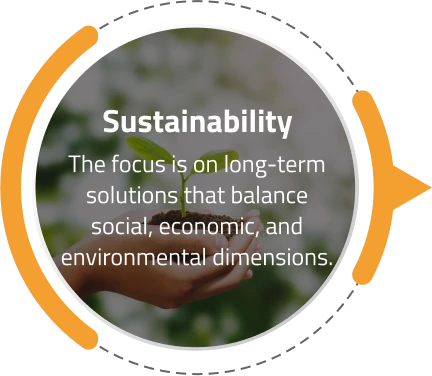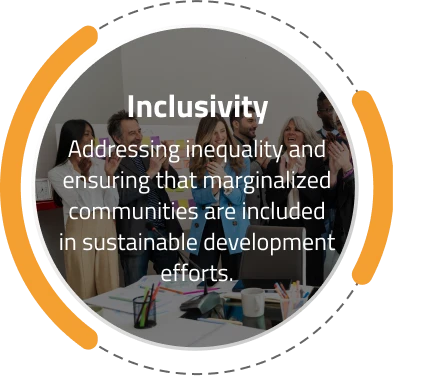

Our Mission
JB Pharma’s mission is to integrate environmental stewardship, social responsibility, and strong governance into its core business practices. This includes key steps such as reducing the environmental footprint through sustainable manufacturing, ensuring patient access to life-saving medicines, promoting diversity and inclusion in the workforce, and maintaining the highest ethical standards.

Our Vision
JB Pharma’s vision is to lead in advancing global health and sustainability while maintaining high ethical standards. This vision includes minimizing environmental impact through responsible resource management, ensuring equitable access to life-saving medicines, and fostering innovation in safe and sustainable ways.

Our Purpose
JB Pharma’s purpose is to create long-term value for both society and investors by addressing environmental, social, and governance priorities. This includes reducing the environmental impact in operations, ensuring access to healthcare, and upholding transparency and accountability. By focusing on sustainability and social responsibility, JB pharma aim to improve global health outcomes, promote ethical standards and foster trust among stakeholders. This holistic approach helps to enhance patient well-being while contributing to a more sustainable and equitable healthcare system.


- To meet 40% of power demand from renewable energy by FY 2026-27 and 100% by FY 2032-33.
- Carbon neutral in direct operations (Scope 1 and2 emissions) by FY 2032-33.
- Zero Liquid discharge (ZLD) for all plant location.
- To achieve Zero waste to Landfill by FY 2032-33.
- To achieve water positivity by FY 2032-33.
- Enhance women representation in total workforce to 15% by FY 2026-27 and across cadres to 25% by FY 2032-33.
- 25 average learning hours per employee by FY 2026-27
- To continue Zero Fatality across all manufacturing sites.
- Meet the highest standards on compliance and ethics backed by robust corporate governance.
- To continuously produce quality and affordable products for patients globally.
- Enhance our disclosures to reach top quartile by FY 2026-27 (Enhanced disclosures with the release of several policies on our website. Comprehensive BRSR, Sustainability Reporting, independent assurance and enhanced ESG disclosures.)
ESG Governance
Our governance structure ensures effective ESG oversight, driving long-term growth and value creation for stakeholders.
ESG Organogram
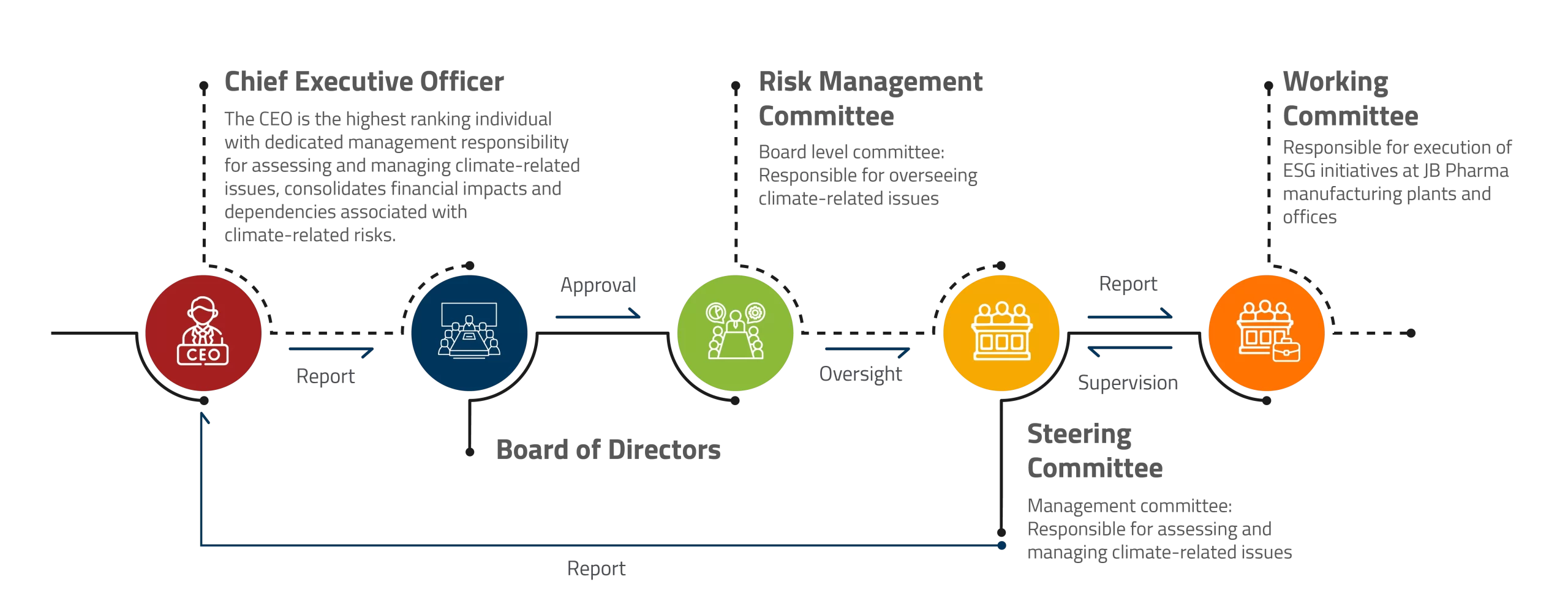
BRSR Principles
The Business Responsibility and Sustainability Reporting (BRSR) framework is an environmental, social, and governance (ESG) reporting structure developed by the Securities and Exchange Board of India (SEBI). It is designed to promote greater transparency and responsibility in corporate governance. The BRSR replaces the older Business Responsibility Report (BRR) and is aimed at enhancing sustainability disclosures by companies, making it aligned with global frameworks.
These are 9 key attributes NGRBC (National Guidelines on Responsible Business Conduct) principles. Businesses should:

Board Diversity Policy

Supplier Code of Conduct

Human Rights Policy

Human Rights Policy

Human Rights Policy
Supplier code of conduct Policy

Environment Health Safety Policy

Business Responsibility Policy

Corporate Social Responsibility Policy

Business Responsibility Policy
Information Security System Cyber Security

Board Diversity Policy

Supplier Code of Conduct

Human Rights Policy

Human Rights Policy

Human Rights Policy
Supplier code of conduct Policy

Environment Health Safety Policy

Business Responsibility Policy

Corporate Social Responsibility Policy

Business Responsibility Policy
Information Security System Cyber Security
UNGC Principles
The United Nations Global Compact (UNGC) is an initiative designed to encourage businesses and organizations worldwide to adopt sustainable and socially responsible policies. It consists of Ten Principles that provide a framework for businesses to operate in ways that meet fundamental responsibilities in four key areas: Human Rights, Labor, Environment, and Anti-corruption.
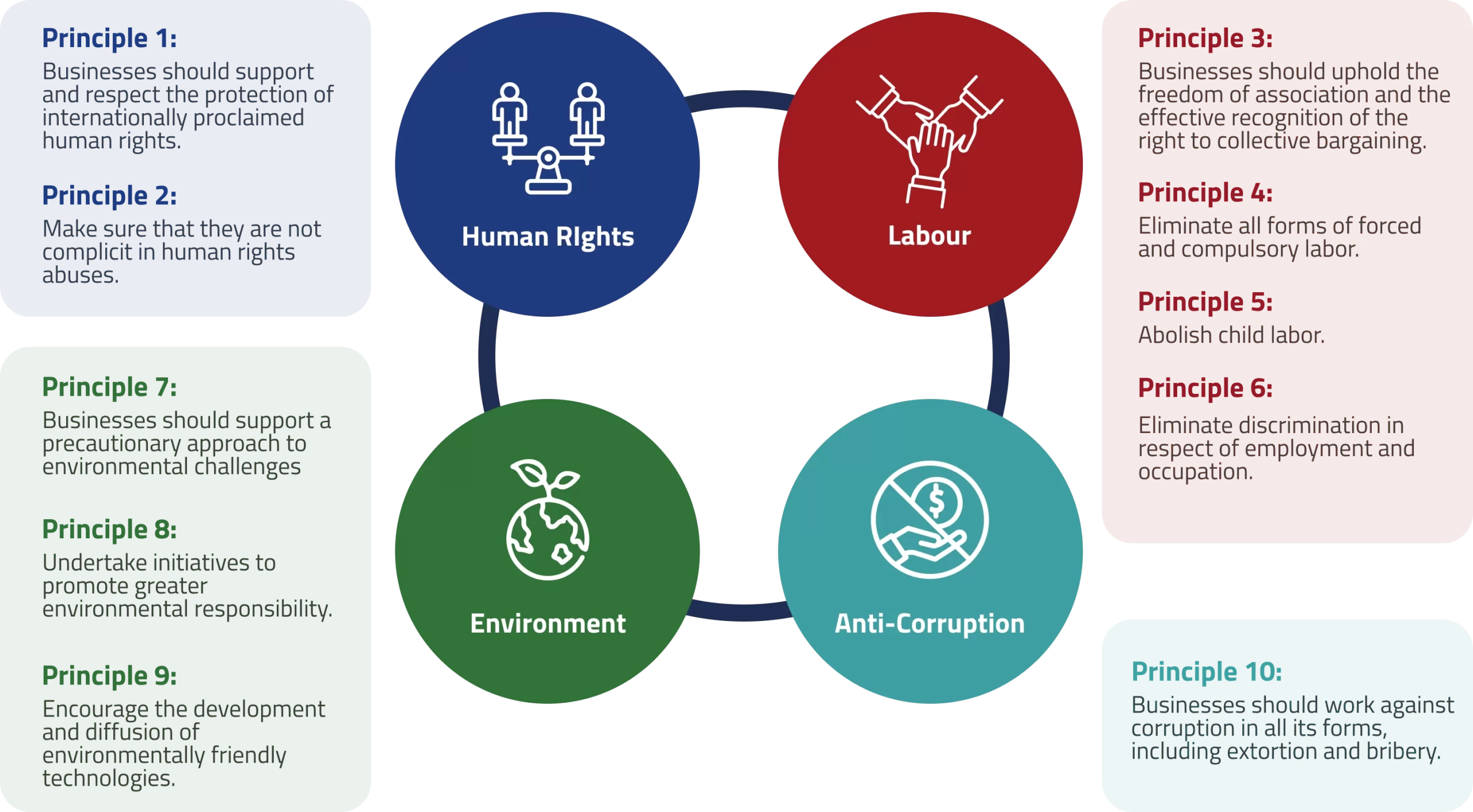
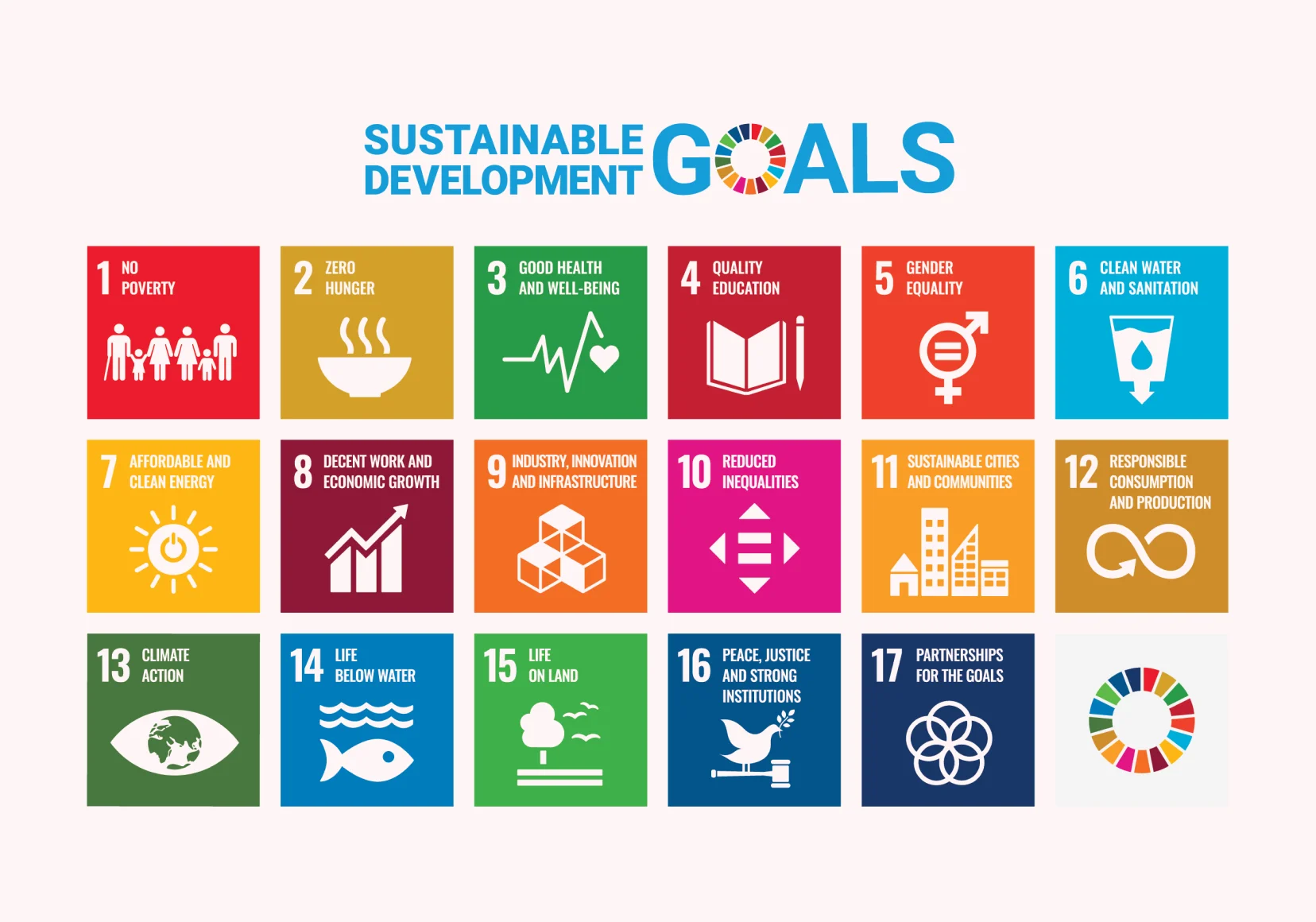
UNGC Principles
The United Nations Sustainable Development Goals (UNSDGs) are built around a set of broad guiding principles aimed at promoting sustainable development. The UNSDGs consist of 17 interconnected goals that are designed to be a “blueprint to achieve a better and more sustainable future. These goals focus on addressing global challenges, including poverty, inequality, climate change, environmental degradation, peace, and justice.
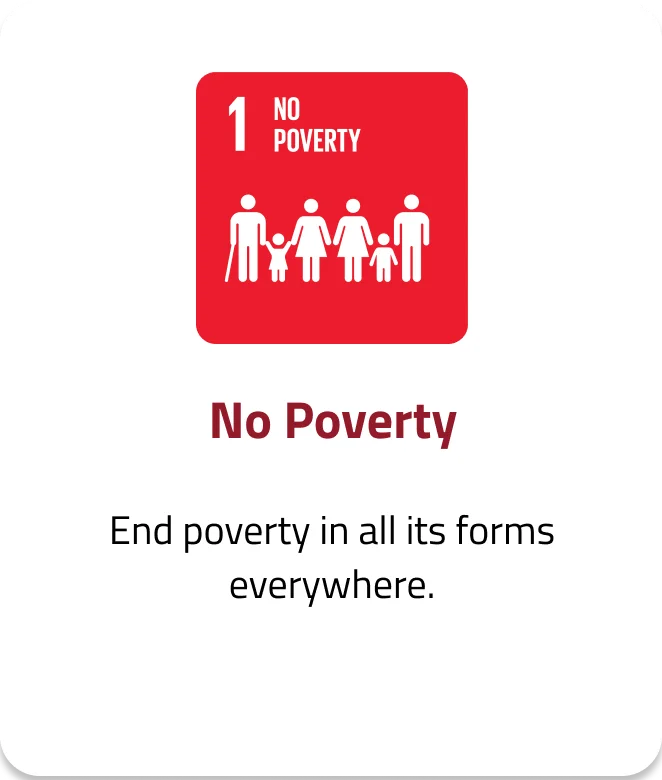


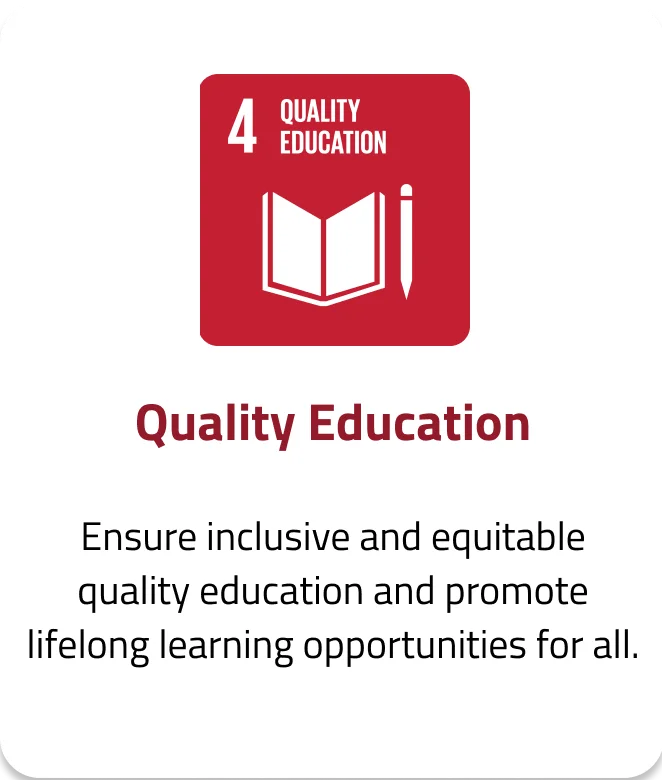
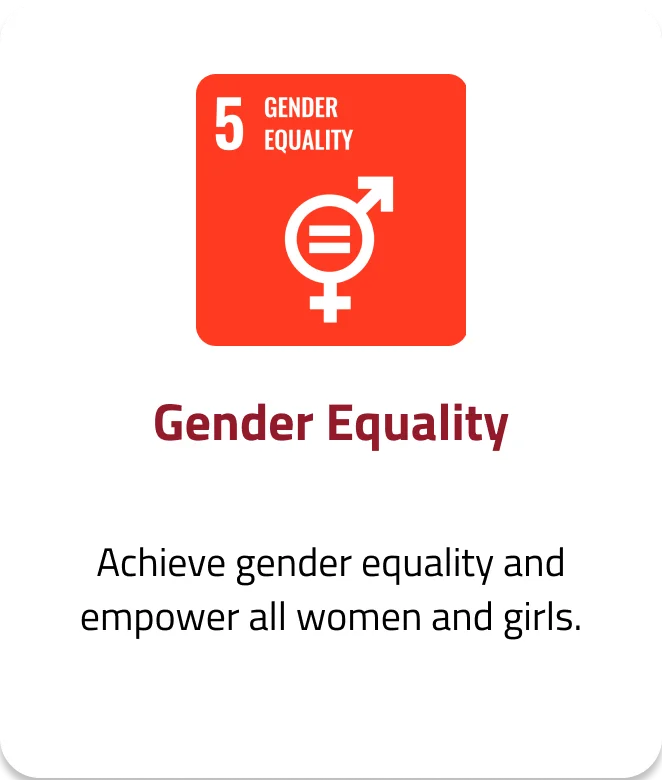
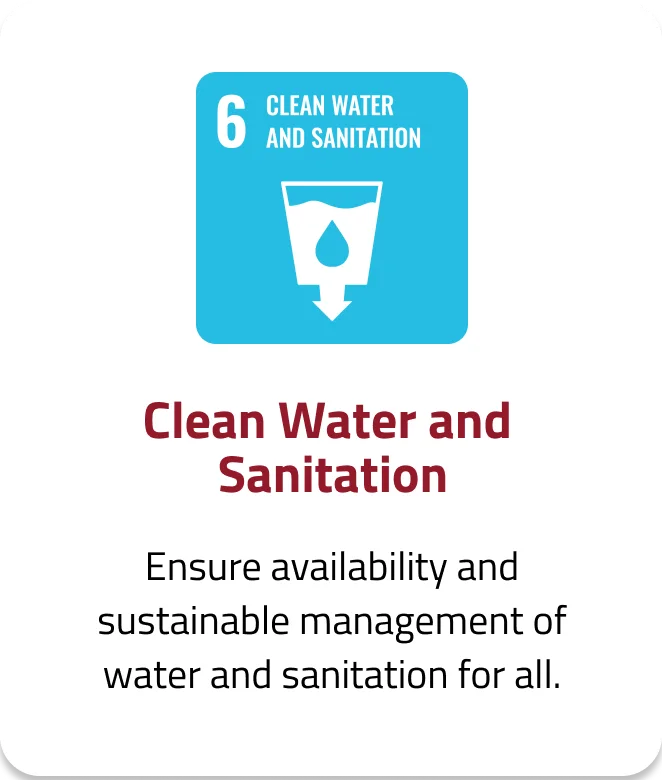
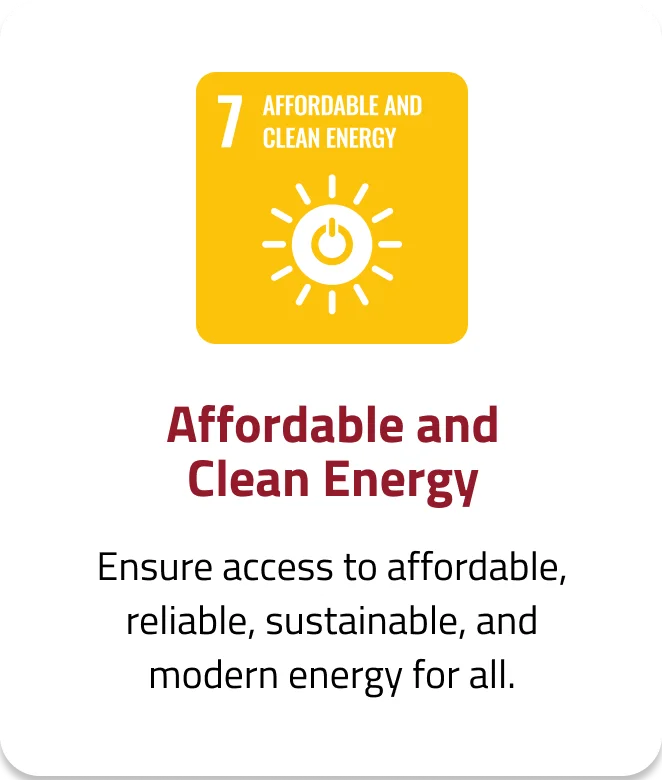
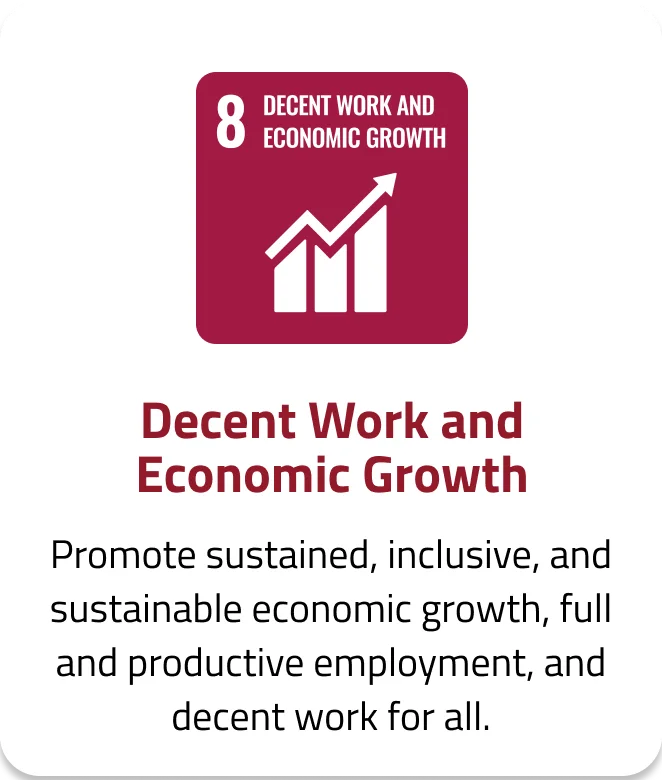
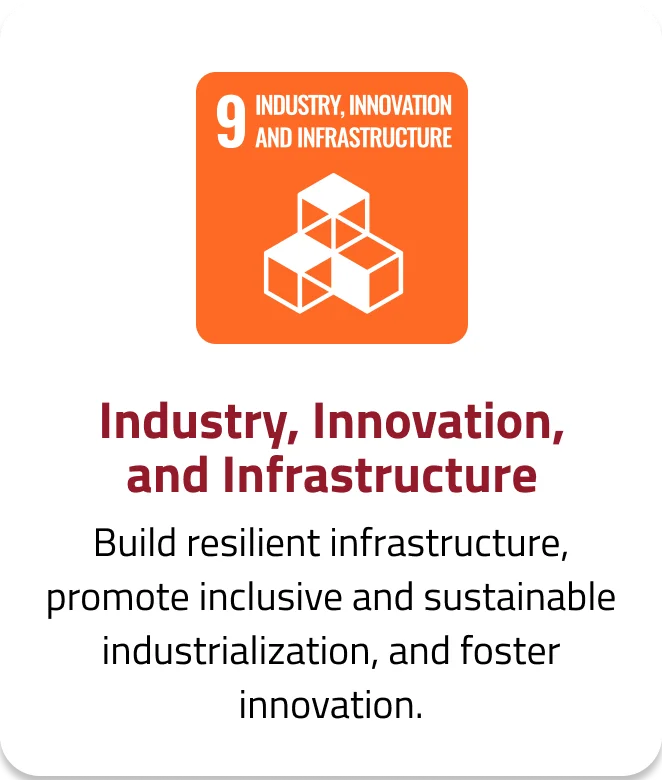
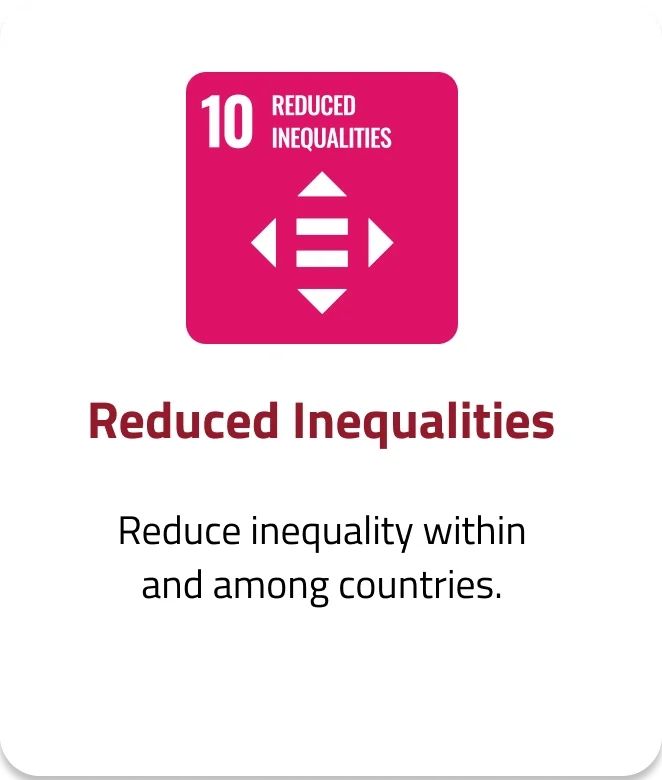
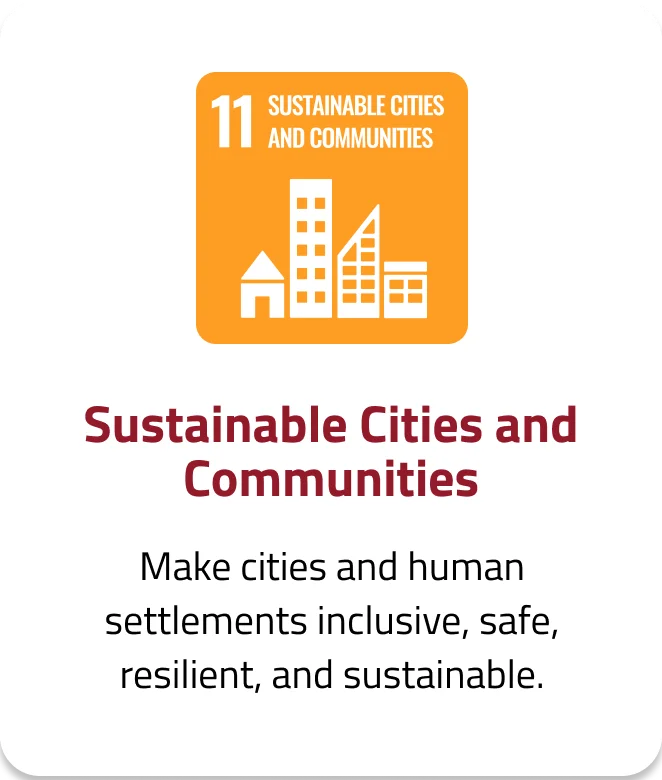
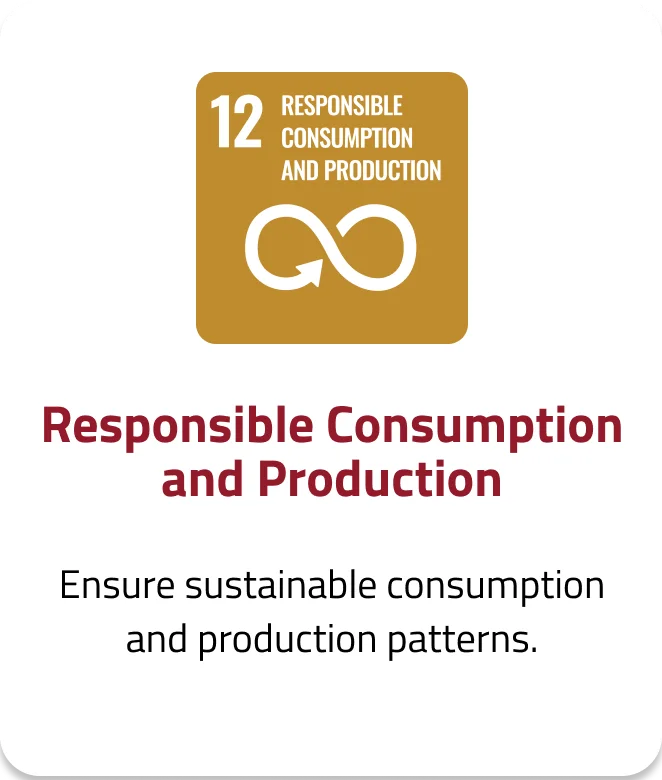

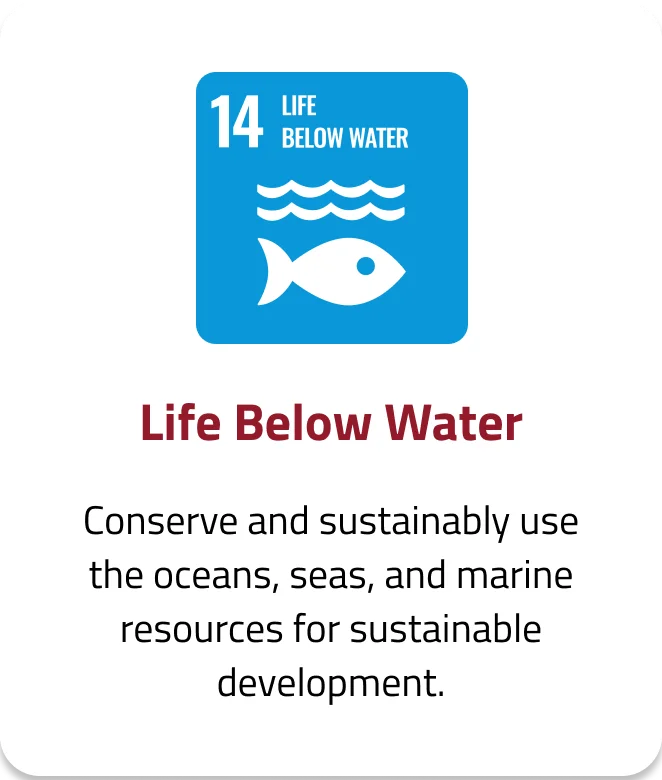

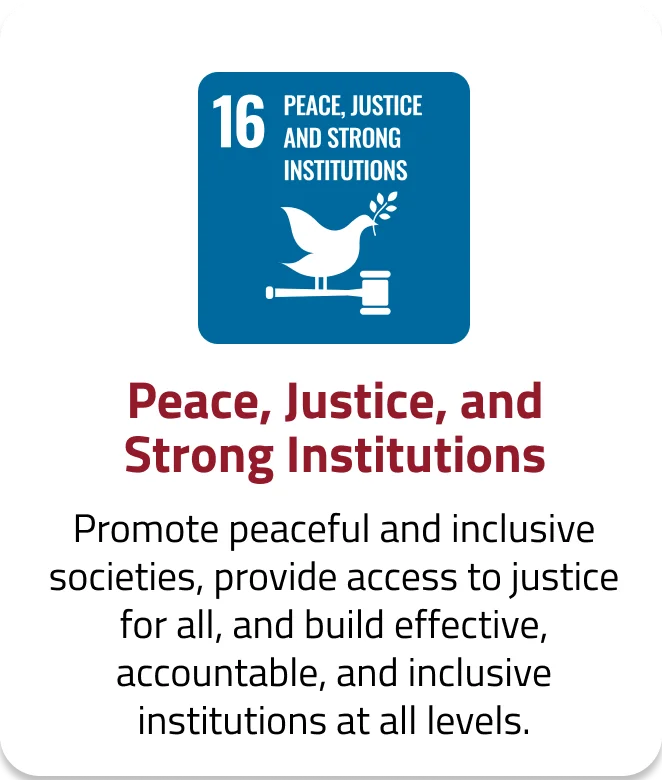

UNSDG Guiding Principles
These goals do not have standalone principles, they are underpinned by key concepts such as:



